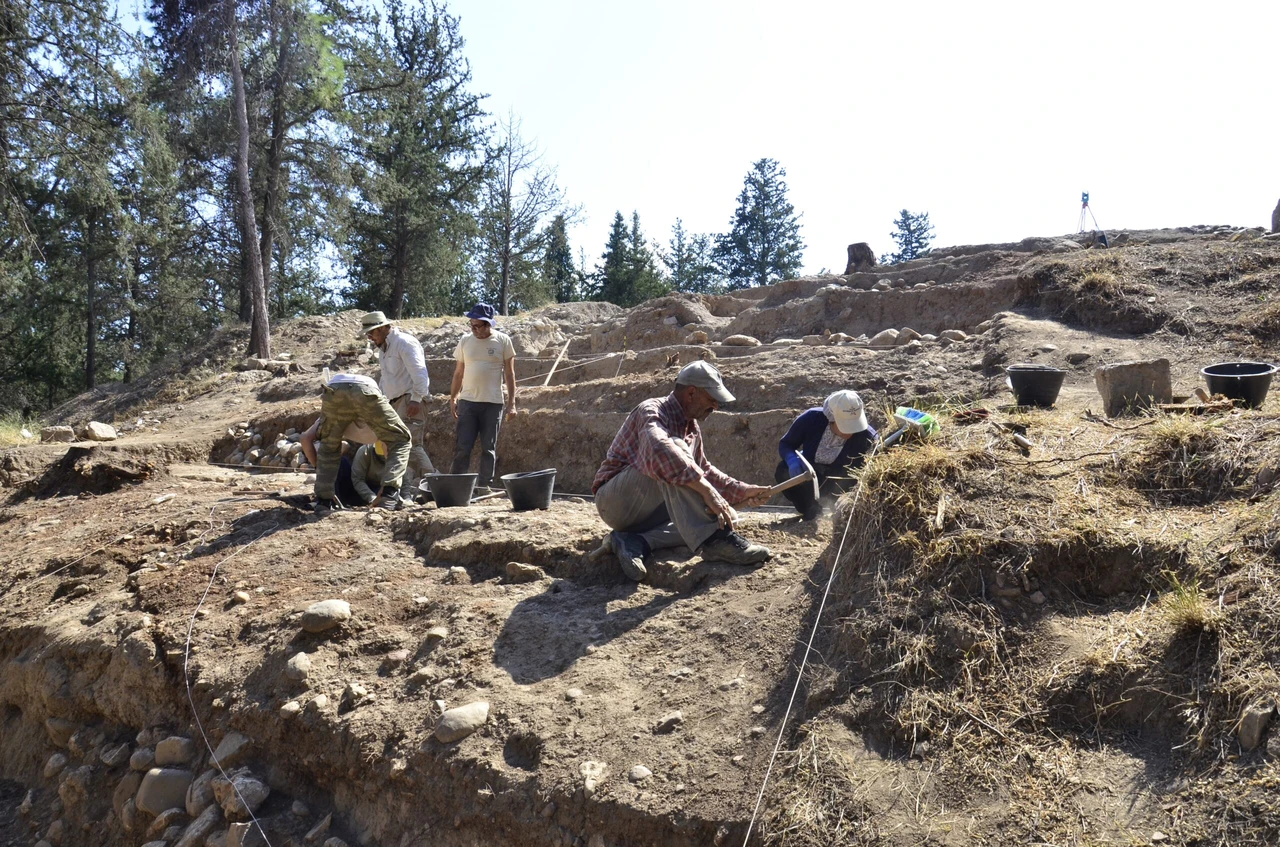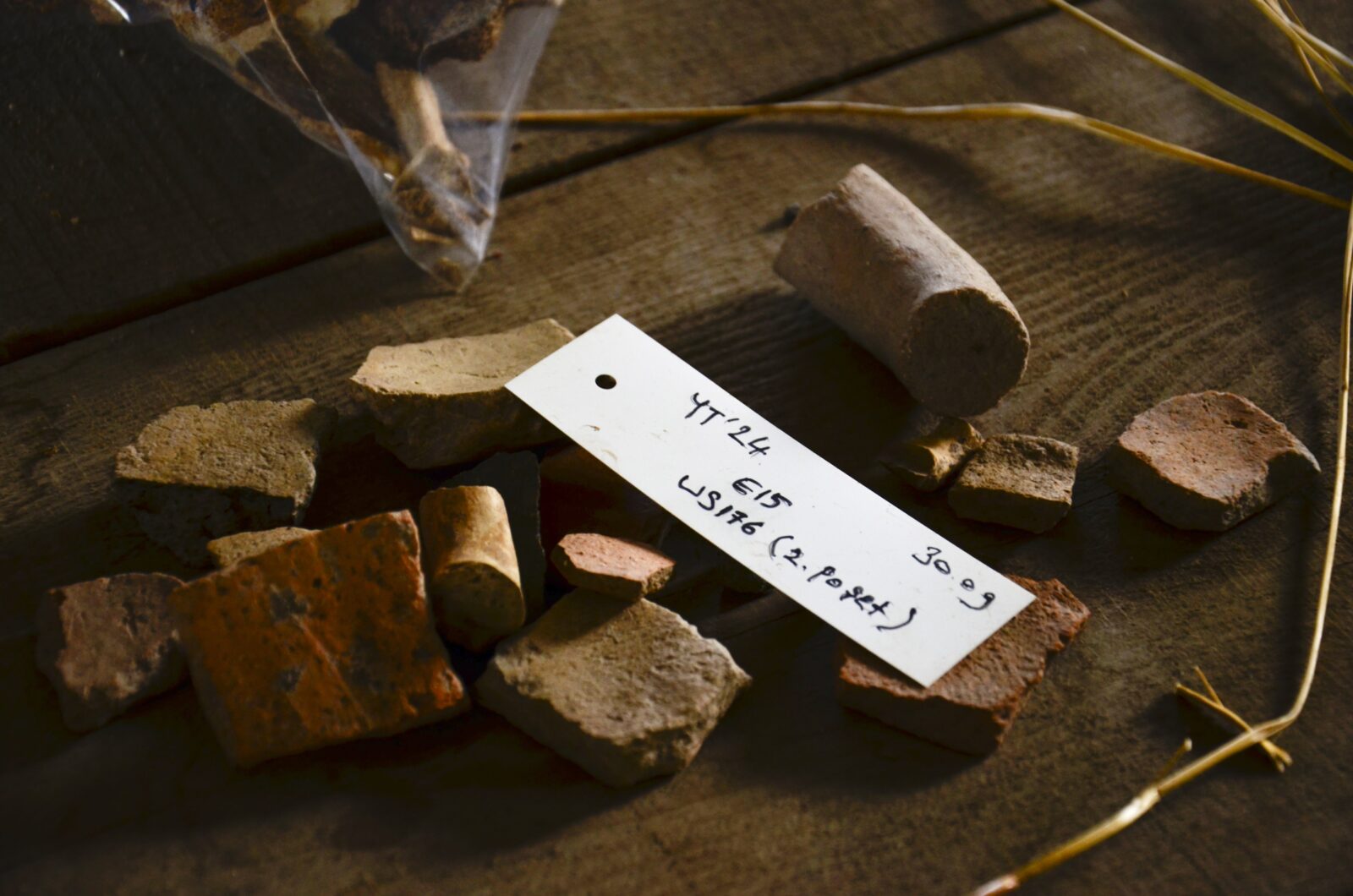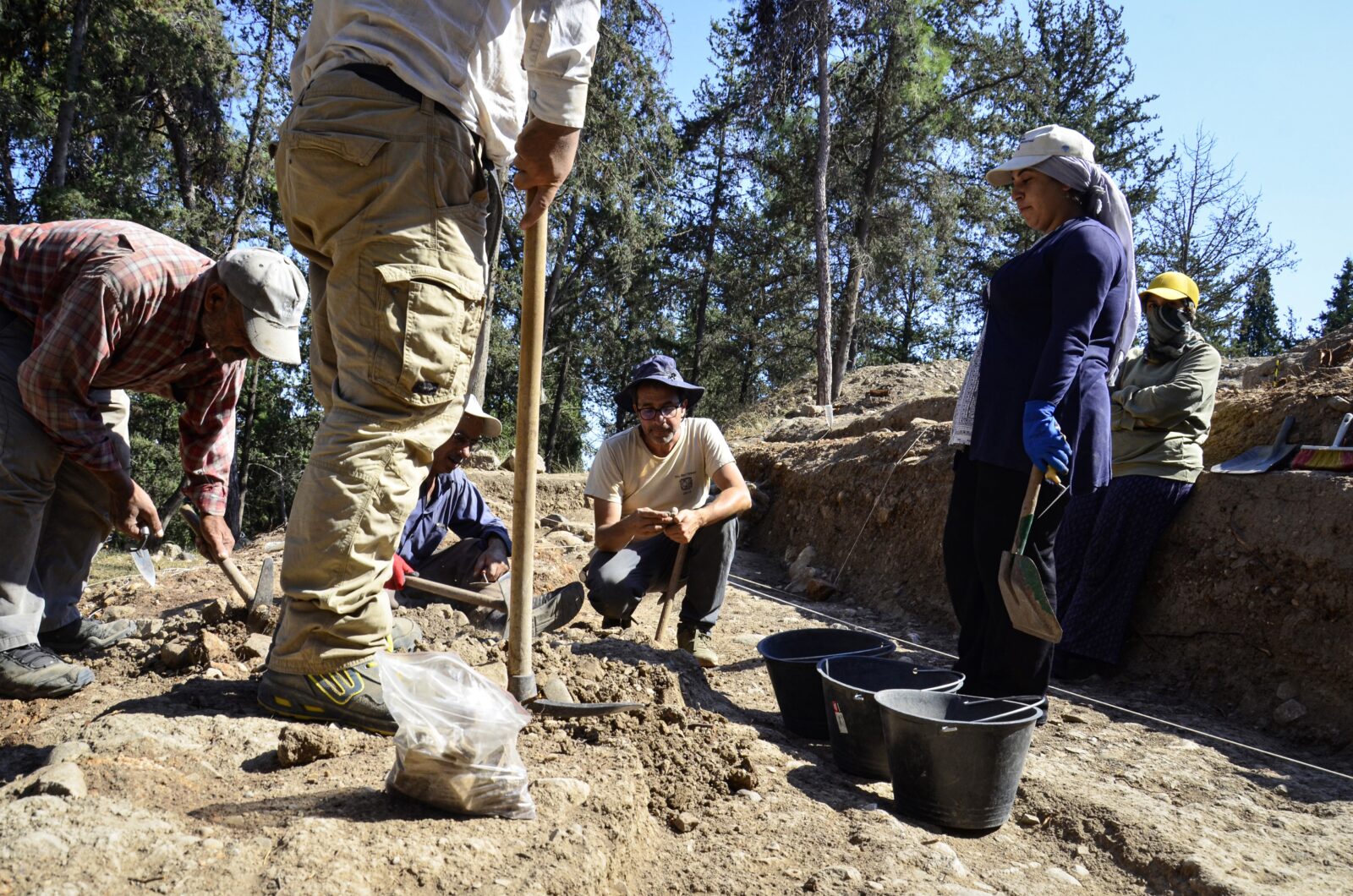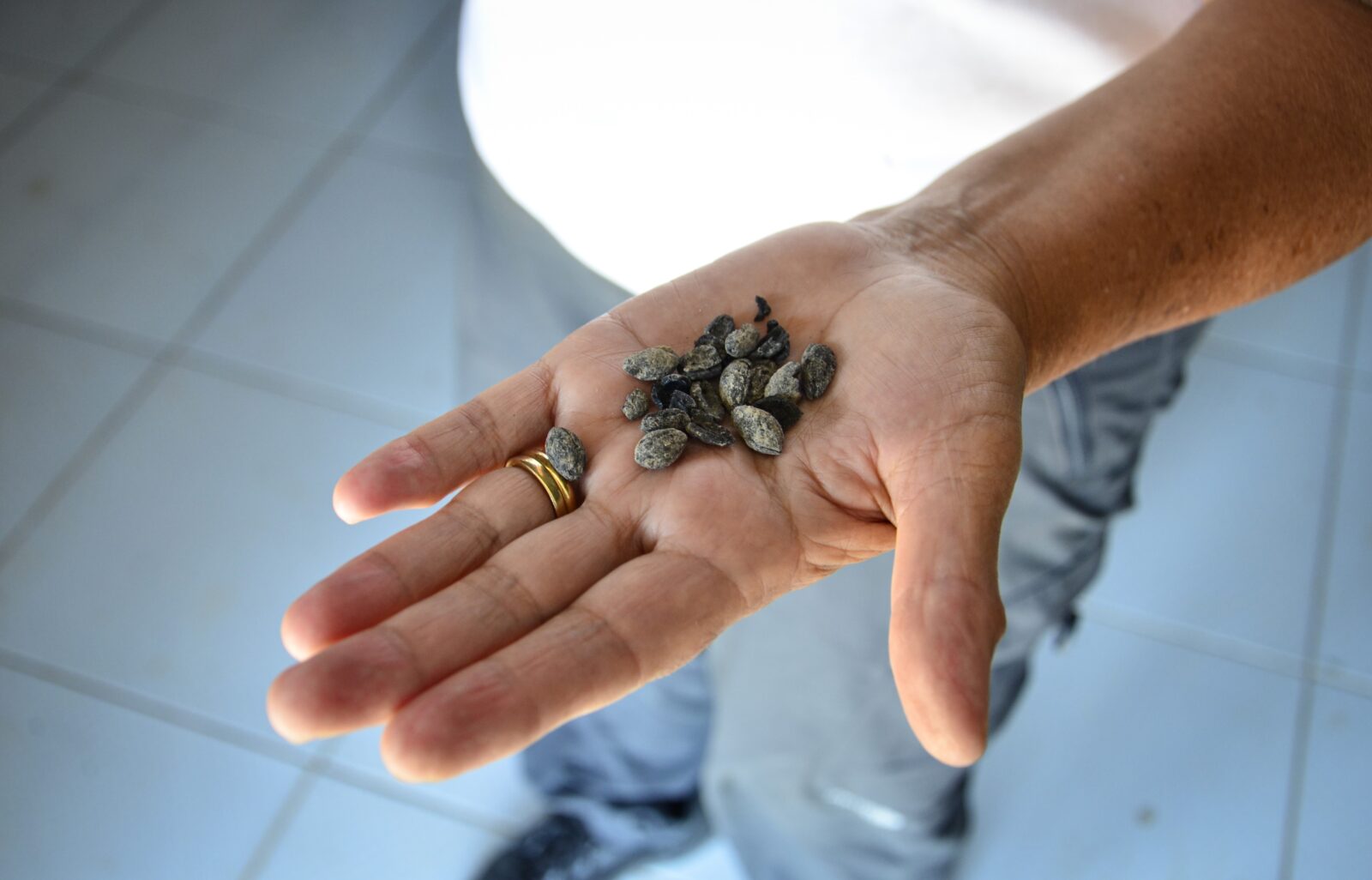Excavations in Türkiye reveal 9,000-year-old Hittite settlement
 Archaeologists led by Prof. Dr. Giulio Palumbi work on excavations at the 9,000-year-old Yumuktepe mound, a known Hittite settlement in Mersin, Türkiye, October 7, 2024. (IHA Photo)
Archaeologists led by Prof. Dr. Giulio Palumbi work on excavations at the 9,000-year-old Yumuktepe mound, a known Hittite settlement in Mersin, Türkiye, October 7, 2024. (IHA Photo)
Excavations at Yumuktepe Mound, an ancient Hittite settlement located in Anatolia, have concluded for the season, yielding key archaeological discoveries.
Located in Mersin, a southern coastal city in Türkiye, the mound dates back to 7,000 B.C.E. Türkiye is home to numerous ancient sites like this, which contribute to the country’s reputation as a rich destination for archaeology and history.

Archaeologists discover Hittite settlement, important Iron Age artifacts in Türkiye
Led by professor Giulio Palumbi from Bari Aldo Moro University, the team worked on expanding the foundations of a previously discovered Hittite wall.
“This large stone foundation, combined with smaller stones on top, reveals the construction technique used in the region around 1200 B.C.E,” explained Palumbi.
The wall, which collapsed during a crisis in the New Hittite Kingdom, provides crucial evidence about the kingdom’s eventual fall. The findings suggest that this wall was part of a significant structure in the region, offering valuable insights into Hittite settlement and architecture, besides the political turmoil of that period.

The team also uncovered artifacts from the Middle Iron Age. “For the first time, we’ve accessed materials from the eighth and seventh centuries B.C.E,” said the assistant head of excavations, Tulay Ozaydin. These items include well-preserved ovens, found alongside animal bones, which will undergo further analysis.
The discovery sheds light on the domestic practices and everyday life of the region’s ancient inhabitants. According to Ozaydin, these findings also strengthen the connection between the area and other Mediterranean cultures, particularly Cyprus.

Olive cultivation in Anatolia traced back to Neolithic times
Another notable discovery this year was the abundance of olive pits, which suggests that olives were a native plant in the Yumuktepe area as far back as the Neolithic period. “We will be conducting additional research to determine whether these olives were domesticated or grafted over time,” noted Ozaydin.
The findings are significant, as they provide a glimpse into early agricultural practices in the region. Olives have played a vital role in the Mediterranean diet for millennia, and this discovery adds to our understanding of how long these crops have been grown in the area.
The ongoing excavations are part of the Ministry of Culture and Tourism’s “Legacy for the Future Project,” which is working to uncover and preserve ancient sites throughout Türkiye. The work at Yumuktepe is scheduled to continue until the end of November, led by a team from Inonu University.



